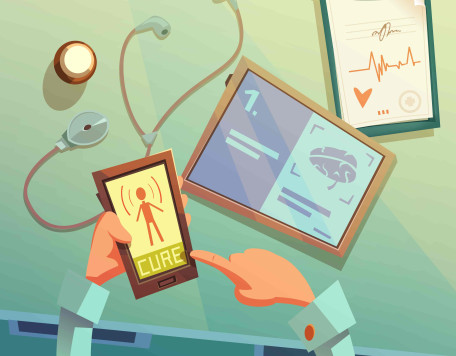© Pint of Science, 2025. All rights reserved.
Join us for three insightful talks on the microscopic-size world of biology. Learn about platelet research and its potential to transform treatments for dangerous blood clots, uncover the intriguing existence of MRSA bacteria and its implications for antibiotic resistance, and delve into the microscopic world to see how it reveals the intricacies of cancer cells and our immune system. This event promises to enlighten and fascinate with stories of the tiny forces within us that have a massive impact on our health.
From pixels to patients: the use of microscopy in healthcare research
Emily Woodcock
(Head of Imaging Resource Facility)
Microscopy allows us to make the invisible visible and is a technique widely used in scientific research. From understanding how individual cancer cells behave after chemotherapy treatment to understanding how our own immune system could help to fight disease, microscopes allow us to visualise and understand key biological concepts. Join us as we discover the important discoveries of the past and the remarkable research taking place at St George’s through a collection of amazing images all made possible with microscopy!
MRSA: Making Resistant Staph Aroused
Maximilian Wallat
(PhD Student)
MRSA (Methicillin Resistant Staphylococcus aureus) is an antibiotic-resistant version of a bacterium that lives its life up your nose. Like other members of microbiome, it uses you as a dining table, toilet, pub, fighting ring, and a bed – usually harmlessly. In this talk, we’ll discuss the sex life of this infamous bacteria, how this can render antibiotic treatments useless, and why I spend hundreds of hours recording MRSA doing the devils dance right under your nose.
Haemostasis: to clot or not to clot?
Brianna Watson
(Final year PhD student researching platelet signalling in haemostasis and thrombosis.)
Platelets are tiny cells in our blood and hey are responsible for forming blood clots to stop blood loss. Platelets start forming a clot after receiving signals from damaged blood vessels. Unfortunately, platelet signalling can become a bit scrambled and can result in dangerous blood clots. These dangerous blood clots block blood vessels and cause heart attacks and strokes. In my talk I will discuss how research into understanding how platelets work can help us to create better treatment options for dangerous clots.
Map data © OpenStreetMap contributors.
Other The Battersea Barge events
2025-05-20
Smartphones and Smart Medicine
The Battersea Barge
Nine Elms Lane, London, SW11 8PZ, United Kingdom
2025-05-19
Beyond Earth: The Search for Life in Our Solar System
The Battersea Barge
Nine Elms Lane, London, SW11 8PZ, United Kingdom



